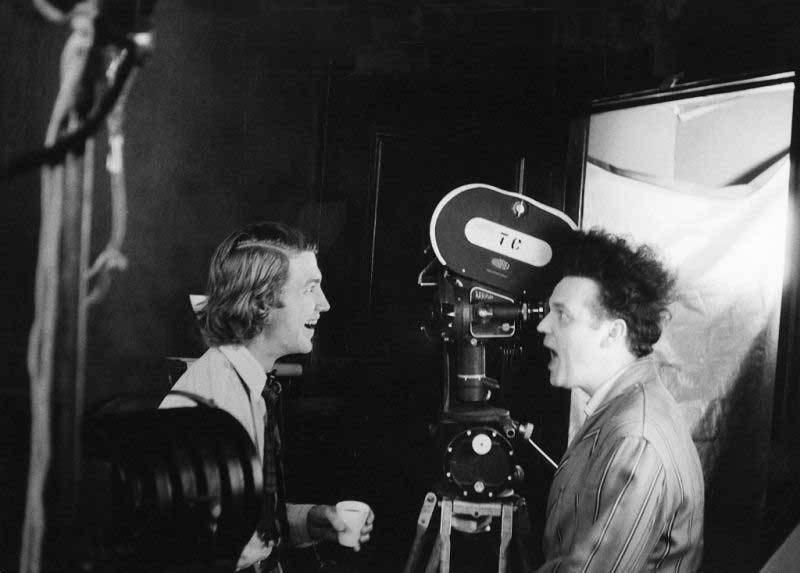David Lynch: A Unique Filmmaking Legacy
In the pilot episode of Twin Peaks, David Lynch masterfully captures the mundane rhythms of everyday life in a high school setting. A girl sneaks a cigarette, a boy is summoned to the principal's office, and a teacher takes attendance. The scene shifts abruptly when a police officer enters the classroom and whispers to the teacher. A scream pierces the air, and through the window, a student is seen running across the courtyard. The teacher struggles to hold back tears, signaling an impending announcement. Lynch's camera then focuses on an empty seat in the classroom, as two students exchange a knowing glance, realizing that their friend Laura Palmer is dead.
Lynch's work is renowned for its meticulous attention to surface-level details, yet he always delves deeper, uncovering the unsettling undercurrents that lurk beneath. This scene from Twin Peaks encapsulates the thematic essence of his career, blending the ordinary with the extraordinary. However, it's just one of many iconic moments in Lynch's extensive body of work spanning over four decades. Each fan might have a different favorite, reflecting the diverse appeal of his singular voice.
The term "Lynchian" has become synonymous with an unsettling, dream-like quality that defies easy categorization. It's a testament to Lynch's unique contribution to cinema and television, much like "Kafkaesque" describes a broader, disorienting experience. The difficulty in accepting his passing lies in the loss of such a distinctive artist whose work resonates differently with each viewer.
For budding film enthusiasts, watching Lynch's Eraserhead is a rite of passage. This tradition continues across generations, as evidenced by a teenager and his girlfriend independently choosing to binge-watch Twin Peaks, reaching the Windom Earle era of Season 2. Lynch's work remains timeless, blending oddity with a sense of nostalgia, as seen in Twin Peaks: The Return where a child's bedroom evokes the 1950s, yet exists within a surreal, Lynchian universe.
Despite the Hollywood trend of reviving nostalgia, Lynch's Twin Peaks: The Return defied expectations by not relying on the return of beloved characters in a conventional manner. This approach was quintessentially Lynchian. Even when Lynch ventured into mainstream cinema with Dune, his distinctive style shone through, despite the film's troubled production, as detailed in Max Evry's book, A Masterpiece in Disarray. Lynch's ability to infuse even the most conventional narratives with his unique vision is evident in the bizarre imagery of Dune.
Lynch's films often explore the beauty within the strange and disturbing. The Elephant Man, his closest brush with mainstream acclaim, is a poignant and touching film set against the backdrop of a harsh historical reality. This blend of beauty and disquiet is a hallmark of Lynch's work, which defies easy categorization but is instantly recognizable.
In Blue Velvet, Lynch juxtaposes the idyllic facade of mid-century Americana with a darker, surreal underworld. The film follows an everyman turned amateur detective, uncovering a world far removed from the Norman Rockwell imagery. Lynch's work is influenced by a unique set of inspirations, including The Wizard of Oz, which adds to the surreal quality of his films.
Lynch's influence extends to contemporary filmmakers. Jane Schoenbrun's I Saw The TV Glow features a scene reminiscent of Lynch's style, with its atmospheric camera work and surreal elements, directly inspired by Twin Peaks. Other filmmakers like Yorgos Lanthimos, Robert Eggers, Ari Aster, David Robert Mitchell, Emerald Fennell, Richard Kelly, Rose Glass, Quentin Tarantino, and Denis Villeneuve have all drawn from Lynch's well of surrealism and dark humor.
David Lynch's legacy is not just in his films but in his influence on future generations of filmmakers. His work invites viewers to look beyond the surface, seeking out the "Lynchian" elements that continue to inspire and unsettle. As we reflect on his contributions, we recognize him as a pivotal figure whose impact on cinema and television will endure.

-
 Feb 20,25Where to Preorder the Samsung Galaxy S25 and S25 Ultra Smartphones Samsung's Galaxy S25 Series: A Deep Dive into the 2025 Lineup Samsung unveiled its highly anticipated Galaxy S25 series at this year's Unpacked event. The lineup features three models: the Galaxy S25, S25+, and S25 Ultra. Preorders are open now, with shipping commencing February 7th. Samsung's web
Feb 20,25Where to Preorder the Samsung Galaxy S25 and S25 Ultra Smartphones Samsung's Galaxy S25 Series: A Deep Dive into the 2025 Lineup Samsung unveiled its highly anticipated Galaxy S25 series at this year's Unpacked event. The lineup features three models: the Galaxy S25, S25+, and S25 Ultra. Preorders are open now, with shipping commencing February 7th. Samsung's web -
 Jan 27,25Roblox: Bike Obby Codes (January 2025) Bike Obby: Unlock Awesome Rewards with These Roblox Codes! Bike Obby, the Roblox cycling obstacle course, lets you earn in-game currency to upgrade your bike, buy boosters, and customize your ride. Mastering the various tracks requires a top-tier bike, and thankfully, these Bike Obby codes deliver
Jan 27,25Roblox: Bike Obby Codes (January 2025) Bike Obby: Unlock Awesome Rewards with These Roblox Codes! Bike Obby, the Roblox cycling obstacle course, lets you earn in-game currency to upgrade your bike, buy boosters, and customize your ride. Mastering the various tracks requires a top-tier bike, and thankfully, these Bike Obby codes deliver -
 Mar 04,25The Godfeather swoops onto iOS, pre-registration open now! The Godfeather: A Pigeon-Fueled Mafia War Arrives on iOS August 15th! Pre-register now for The Godfeather: A Mafia Pigeon Saga, a roguelike puzzle-action game launching on iOS August 15th! Evade the Pidge Patrol, unleash your avian arsenal (ahem, droppings), and reclaim the neighborhood from both h
Mar 04,25The Godfeather swoops onto iOS, pre-registration open now! The Godfeather: A Pigeon-Fueled Mafia War Arrives on iOS August 15th! Pre-register now for The Godfeather: A Mafia Pigeon Saga, a roguelike puzzle-action game launching on iOS August 15th! Evade the Pidge Patrol, unleash your avian arsenal (ahem, droppings), and reclaim the neighborhood from both h -
 Jan 11,25Jujutsu Kaisen Phantom Parade: Tier List Revealed This Jujutsu Kaisen Phantom Parade tier list helps free-to-play players prioritize character acquisition. Note that this ranking is subject to change with game updates. Tier List: Tier Characters S Satoru Gojo (The Strongest), Nobara Kugisaki (Girl of Steel), Yuta Okkotsu (Lend Me Your Stren
Jan 11,25Jujutsu Kaisen Phantom Parade: Tier List Revealed This Jujutsu Kaisen Phantom Parade tier list helps free-to-play players prioritize character acquisition. Note that this ranking is subject to change with game updates. Tier List: Tier Characters S Satoru Gojo (The Strongest), Nobara Kugisaki (Girl of Steel), Yuta Okkotsu (Lend Me Your Stren
